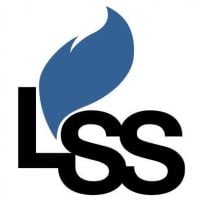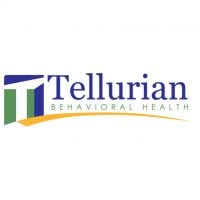About
The Stoughton Hospital Association, located in Stoughton, Wisconsin, is a local community hospital focused on providing quality healthcare to the region. Founded in 1996, Stoughton Hospital Association is a nonprofit, critical access hospital that prides itself in the full range of care services it offers to the public. From primary and specialty care to emergency services and advanced care, the hospital offers comprehensive care to those in need.
The hospital also offers an array of services to those struggling with addiction and substance abuse. Treatment options include medical detoxification, inpatient and outpatient rehabilitation, counseling services, and aftercare programs. Stoughton Hospital Association's dedicated and experienced staff provide patients with a personalized treatment plan for dealing with addiction and maximizing their recovery.
Stoughton Hospital Association is licensed by the state of Wisconsin and is accredited by the Joint Commission on Accreditation for Health Care Organizations. The hospital also offers a number of awards and recognitions, such as the Wisconsin's Best Hospital Update Award, Wisconsin's Best Maternity Care Award, and the Open House Quality Excellence Award from the Wisconsin Hospital Association. Stoughton Hospital Association is also an affiliate of the National Addiction Treatment Providers Association, providing access to extensive resources, as well as best practice standards, for those seeking addiction treatment.
Genders
Ages
Modality
Additional
Conditions and Issues Treated
A person who struggles with addiction and a mental health condition suffers from a dual diagnosis. This means that they have two issues that must be treated. The specific mental health issues that the patient at Stoughton Hospital Association might have include but are not limited to:
- Depression
- Bipolar Disorder
- Anxiety
- PTSD (Post Traumatic Stress Disorder)
The specific addiction issues that the patient might have include but are not limited to:
- Alcoholism
- Drug Addiction (i.e., Cocaine, Meth, and other stimulants, Marijuana, and Ecstasy)
The combination of the two illnesses can be tough to treat. Taking care of one or the other is tough, and taking care of both cannot be done alone. A patient who receives dual diagnosis treatment will be given the best chance at becoming sober.
Levels of Care Offered
This center offers a variety of custom treatment tailored to individual recovery. Currently available are Dual-Diagnosis, Inpatient, with additional therapies available as listed below.
Inpatient treatment centers offer a safe, secure, and often medically supervised environment for drug or alcohol-addicted individuals. Many of these facilities are equipped to provide detoxification, treatment for co-occurring mental health disorders, and aftercare programs.
The patient typically spends 28 to 30 days at the facility and will receive extensive drug counseling. They will also learn how to live without drugs and how to make the right decisions in life.
Therapies & Programs
Individualized Treatment is essential because it gives addicts the ability to participate in a program that meets their unique needs. An addict should work with professionals who understand what they’re going through, especially if the addict is actively using. Finding the right treatment program for an addict is difficult, but it’s even harder without communicating with those who have experience treating your specific situation.
Couples therapy is a treatment approach where the patients and their partners are engaged together. When a person becomes a victim of substance abuse, it affects the patient and his people, particularly his partner. Their relationship can become strained due to lack of communication, financial issues, loss of trust, lack of intimacy, and physical abuse in more severe cases. Couples therapy addresses these issues and tries to rebuild the trust between the partners. The partner’s involvement in the process will result in greater chances of treatment success and sustained recovery.
The therapies typically involve all family members, potentially including siblings, children, and parents who play a role in their daily lives. These sessions can be essential because they address past issues that may have affected an addict or alcoholic’s recovery process. They provide support during this time when it is needed most!
A family therapy session, often called a family meeting or intervention, is a necessary process that helps loved ones of addicts see their situation in a new light. It’s also one of the most challenging things families will ever have to do when they’re facing a loved one battling addiction or alcoholism.
Group therapy sessions provide recovering addicts with a chance to cope with everyday situations that many face. Group therapy sessions are held in rehab facilities, clinics, churches or community centers that offer drug addiction treatment.
People who attend these groups are encouraged to voice their feelings and support other addicts in recovery. This helps group members strengthen their own recovery program while cheering on others who are struggling with sobriety.
Trauma therapy allows them to work through past trauma to have peace of mind and begin down the road of sobriety. The therapist will work with the individual to help them understand their past and present relationships. Patients may often believe that something is inherently wrong with them or they are unworthy of love. The therapist aims to correct these negative feelings and behaviors by helping the person realize that their actions do not reflect who they truly are.
Dialectical behavior therapy, or DBT, is one form of cognitive behavioral treatment. This type of therapy typically involves both individual and group sessions with a therapist on a regular basis.
It uses concepts like mindfulness training to help addicts learn how to identify their thoughts, feelings, behaviors and the experiences that trigger them so they can avoid relapse. DBT also teaches addicts how to regulate their emotions, which can make it easier for them to avoid or overcome negative thoughts and cravings.
Cognitive Behavioral Therapy (CBT) is a highly effective treatment option based on the idea that how we feel, think and act all interact together. Our thoughts determine our feelings and behaviors; our feelings affect our thoughts, and our behaviors change our thoughts and feelings. CBT helps people explore their thoughts for problems (or false beliefs) that influence their mood and actions. By examining their thoughts and beliefs, people can recognize distorted or irrational and modify them to more realistic, positive ones. CBT is very goal-oriented, which means that the therapist and patient work together on a specific problem while learning to become more adept at solving future problems.
CBT works well with a broad range of people, including those with depression, anxiety disorders, eating disorders, and problems with anger. In addition to helping a client focus on thoughts that can be changed, CBT also allows them to take an active role in their treatment. This is called a collaborative approach because both patient and therapist work together to produce the best possible results.
CBT is based on cognitive learning theory, which says that our behavior is a learned response to our environment. Cognitive refers to thoughts and beliefs, while behavioral relates to actions or deeds. CBT helps people learn ways of behaving to improve their quality of life by focusing on specific problems or goals they want to achieve. Sometimes, CBT is used alone; other times, it is combined with medications or brief counseling techniques such as solution-focused and motivational interviewing to achieve optimal results for the patient.
For people trying to kick their drug addiction, nutrition therapy at Stoughton Hospital Association is a great tool. Nutritional deficiencies gradually creep in, and before you know it, you’re facing health problems. It helps restore balance to the body, and for many addicts, it represents the first step on the road to recovery.
Nicotine replacement therapy was developed to help people quit smoking. It does so by providing small doses of nicotine that control cravings and break smoking habits.
NRTC products like skin patches and gum deliver low-dose nicotine that prevents cravings, making the transition from smoker to non-smoker easier.
Patient Experience
Experiential Therapy at Stoughton Hospital Association
Drug addicts can benefit from experiential therapy, which involves real-time activities to process trauma and emotions. This type of therapy is available at Stoughton Hospital Association and can help reduce the need to resort to drugs and alcohol. Activities may include role-playing, use of props, and others. The individual learns to release suppressed thoughts that lead to negative feelings and embrace the present moment. Experiential therapy is beneficial in treating various disorders, including drug addiction, eating, and behavioral disorders.
Payment Options Accepted
For specific insurance or payment methods please contact us.
Is your insurance accepted?
Ask an expert, call (888) 674-0062
Additional Details
Specifics, location, and helpful extra information.
Stoughton, Wisconsin 53589 Phone Number(608) 873-6611 Meta DetailsUpdated November 25, 2023
Staff Verified
Patient Reviews
There are no reviews yet. Be the first one to write one.
Stoughton, Wisconsin Addiction Information
Wisconsin has some of the highest rates in the United States for both adolescent and adult substance abuse. Since 2009, the state has been experiencing the same escalating rates of drug abuse and addiction as the rest of the country. The major concerns are the misuse of prescription painkillers and the escalating number of deaths due to alcohol-related liver disease.
The community in Stoughton, WI has been hit hard by drug addiction and abuse. Crime rates due to addiction are high, and overdoses are becoming more common. In 2017, there were a total of 22 drug overdoses in Stoughton, WI -Of those 22 overdoses, eight were fatal. Treatment depends on the severity of the addiction and the individual's needs. Some treatments may be more effective than others, depending on the individual.
Treatment in Nearby Cities
- Viroqua, WI (95.3 mi.)
- Middleton, WI (19.2 mi.)
- Port Washington, WI (74.7 mi.)
- Fitchburg, WI (12.2 mi.)
- Kenosha, WI (74.3 mi.)
Centers near Stoughton Hospital Association
The facility name, logo and brand are the property and registered trademarks of Stoughton Hospital Association, and are being used for identification and informational purposes only. Use of these names, logos and brands shall not imply endorsement. RehabNow.org is not affiliated with or sponsored by Stoughton Hospital Association.





